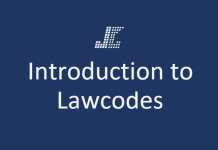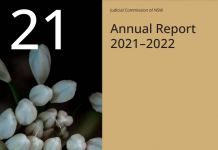Update 25 to the Handbook contains amendments to:
[6-000] Recent sexual assault law
The following recent cases have been added:
Porter v R [2019] NSWCCA 117, where error was found in the sentencing judge’s approach to the application of totality. Although the sentencing judge erred by failing to provide reasons for how he applied the totality principle, no lesser sentence was warranted: [1]; [54]–[55], [92]; [94]. His Honour correctly alluded to the need to consider the effect of sentencing the applicant in relation to all three episodes of offending but did not then say how he considered that effect: [51]–[52].
R v Toohey [2019] NSWCCA 182, where error was found in the sentencing judge’s application of the principle of totality. The respondent was convicted of aggravated sexual intercourse with a child under 10, while serving a sentence for manslaughter of the same victim at the time of conviction of this offence. The Crown’s appeal was allowed. It was not appropriate to characterise the criminality of the s 66A(2) offence as substantially reflected in the manslaughter offence on the basis they occurred in the same episode and involved the infliction of harm to the child: [58]. The sentence was manifestly inadequate.
Gibbons (a pseudonym) v R [2019] NSWCCA 150, where the applicant, who had received an aggregate sentence of 30 years imprisonment with a non-parole period of 22 years, 6 months for two counts of aggravated sexual assault of a child under 10, appealed the sentence arguing it was manifestly excessive. In dismissing the appeal, the court found that in stating that the offences were “objectively within the most serious category … near the very top of the range”, the judge was not making a finding that the offending fell into the “worst category” of case, but placing the offences on a scale of objective gravity, as her Honour was obliged to do: [39]–[40].
Yu v R [2018] NSWCCA 201, where the applicant appealed his convictions for sexual offences on the ground that the judge erred by failing to correctly direct the jury on the element of consent. The appeal was allowed, convictions quashed and a new trial ordered. The trial judge erroneously directed the jury that the accused could be convicted if the jury were satisfied beyond reasonable doubt that the accused did not care whether or not the complainant consented: [47].
Milliner v R [2019] NSWCCA 127, where the applicant pleaded guilty to one count of attempting to procure a child for unlawful sexual activity, contrary to the Crimes Act, s 66EB(2), and one count of travelling with the intention of meeting a child under 14 years old whom he had groomed for sexual purposes intending to procure a child for unlawful sexual activity, contrary to s 66EB(2A). He was given an effective sentence of 8 years imprisonment, with a non-parole period of 5 years. The applicant appealed on the basis that the sentencing judge erred in the level of accumulation between the two sentences, and an aspect of that argument was that the judge double-counted the element of “grooming” between the two offences. The NSWCCA held that the sentencing judge erred in the degree of accumulation between the two sentences: [72], although there was no double counting in relation to the element of grooming of the child as between the two offences: [63], [66].
[6-050] Other publications
The following publications have been updated:
NSW Bureau of Crime Statistics & Research (BOCSAR) — The progress of sexual offences through the NSW criminal justice system, 2017
[6-100] Government reviews and papers
Consent in relation to s 61HE of the Crimes Act 1900
The NSW Law Reform Commission has now published some material including a survey, submissions, preliminary submissions and Consultation Paper 21 in response to the terms of reference in relation to the review of s 61HE of the Crimes Act 1900 (NSW), which deals with consent in relation to sexual offences.
NSW Sexual Assault Strategy 2018–2021
The NSW Government released their NSW Sexual Assault Strategy 2018-2021 in July 2018. The strategy is a comprehensive framework to improve prevention and response to sexual assault and delivers a three year, whole-of-government approach to sexual assault in NSW for the first time.
[10-260] District Court Criminal Practice Note 11
District Court Criminal Practice Note 11 regarding the Child Sexual Offence Evidence Program Scheme — Downing Centre, has been revised and replaces the version published on 17 December 2015.










